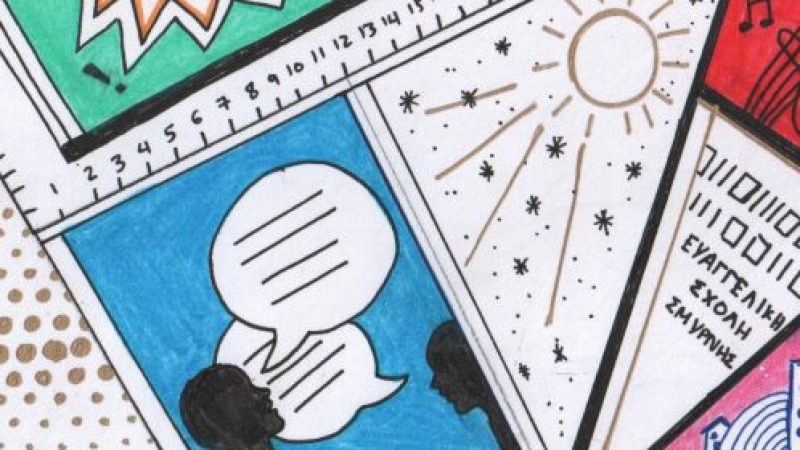Founded in 1717, Evangeliki Model High School of Smyrna has been a Model or Experimental School since 1971. The school community is very active, having developed several school projects and initiatives, many of which are in the area of STEM and/or promote interdisciplinary teaching and learning. Teachers and students are positive towards participating in actions of social interest.
The school also maintains good links and collaborations with various external stakeholders that can help in the development of living lab activities, such as the local Municipality of Nea Smyrni, the Pedagogical Department of Secondary Education of the University of Athens, various other universities and research centres, the alumni association and the parents’ association of the school. The parents’ association can facilitate the development of collaborations with local agencies and companies.
For the SALL pilot in school year 2020-2021, Evangeliki Model High School of Smyrna developed a living lab school project on the topic of healthy eating combined with the effort to reduce carbon emissions. The aim was to design a mobile phone app that would help users to choose to eat healthy food which at the same time would contribute towards less carbon emissions.
In the first stage, students collaborated with a food expert who offered them information and ideas that helped them imagine concrete solutions to the identified problem. The overall planning of the living lab activities of the school foresees collaboration with several societal actors, building on the existing strong links with the local community and various stakeholders.
The implementation of the pilot living lab school project started with students defining the problem they wanted to address, i.e. how to make healthy food choices in everyday life which at the same time do not contribute excessively to carbon emissions. Then they researched existing information and data, focusing in particular on the problem of climate change and factors that increase carbon emissions. As a next step, students researched possible solutions linked to healthy food consumption, through collaboration with the food expert. Students decided to focus on solutions relating to individual healthy food plans. As a final step and a way of ‘prototyping’, students prepared videos and presentations to demonstrate their solutions.
Although the difficulties posed by the COVID-19 pandemic disrupted the full implementation of the planned living lab school project, the living lab approached was generally received very positively by the participants. They saw value in it because they had the opportunity to get familiar with a new methodology. Their future plans include the continuation and enrichment of the above living lab school project. Further activities may include: adding further research and statistical analysis of data at the EU level on carbon emissions, focusing on the case of import-export of food products; research within the school community about food habits; cooperation with local bio-food shops for the co-creation of plans; and co-creation of videos to encourage the school community members to follow Mediterranean diets.
CONTACT
Pavlos Koulouris
National coordinator, Ellinogermaniki Agogi
Mail
School website

